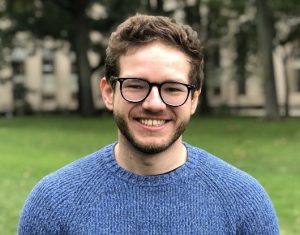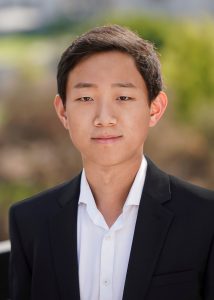Prestigious student awards presented at ECS 244th Meeting
Congratulations to Gustavo Hobold, Massachusetts Institute of Technology, and KyuJung Jun, University of California, Berkeley, winners of the 2023 ECS Battery Division Student Research Award Sponsored by Mercedes-Benz Research and Development. Hobold and Jun presented their award talks at the 244th ECS Meeting in Gothenburg, Sweden.
 Gustavo Hobold
Gustavo Hobold
Massachusetts Institute of Technology
A07—0984 Quantitative SEI-based Descriptors For Li metal Liquid Electrolyte Design
Gustavo M. Hobold is a PhD candidate in Mechanical Engineering at the Massachusetts Institute of Technology (MIT), working with Prof. Betar Gallant. His research focuses on developing a quantitative understanding of the functional properties and chemical composition of solid electrolyte interphases (SEI) formed natively on Li anodes. Hobold’s work leverages in situ experiments and high-throughput post-mortem titration-based techniques to precisely quantify the formation of a wide range of SEI phases and decipher capacity loss mechanisms in modern high Coulombic efficiency (CE) electrolytes. Ultimately, his work revealed several quantifiable SEI-based descriptors that can guide future liquid electrolyte discovery, aiming to breach >99.9% CE. Prior to MIT, Gustavo received his Engineering degree and MS in Mechanical Engineering from the Universidade Federal de Santa Catarina.
KyuJung Jun
University of California, Berkeley
A07—0985 Rationalizing Fast Lithium-ion Diffusion in Inorganic Lithium Superionic Conductors
KyuJung Jun is a PhD candidate in the Department of Materials Science and Engineering at the University of California, Berkeley, advised by Prof. Gerbrand Ceder. Jun’s research focuses on computational understanding of energy materials for sustainability. Specifically, he has contributed to the field by elucidating the lithium ion diffusion mechanism in lithium superionic conductors for all-solid-state batteries. His work involves studying the structural and dynamic factors that influence lithium ion diffusion, leading to the discovery of numerous novel lithium superionic conductors. Jun also developed event-based algorithms to quantify ion-ion (or anion-group) correlations in inorganic materials. This led to mechanistic insights into the impact of anion-group rotations on lithium ion diffusion. His research approach combines fundamental thermodynamics, first-principles calculations, and machine-learning-accelerated molecular dynamics simulations. Jun’s work has been published in journals including Nature Materials and Advanced Energy Materials. He holds a BS from Seoul National University.
Battery Division Student Research Award Sponsored by Mercedes-Benz Research & Development
The Battery Division Student Research Award, established in 1979, recognizes promising young engineers and scientists in the field of electrochemical power sources. The awards are intended to encourage recipients to initiate or continue careers in the field. The award consists of a scroll, USD $1,000 prize, complimentary student meeting registration, and travel expenses of up to USD $1,000 to attend the meeting.
Nominations for the 2024 Battery Division Student Research Award Sponsored by Mercedes-Benz Research & Development are accepted through January 15, 2024. Visit the award webpage to learn more about the award and submit your nomination.
ECS Honors & Awards Program
The Society recognizes outstanding technical achievements in electrochemistry and solid state science and technology through the Honors & Awards Program. These awards are an opportunity to highlight the contributions of our scientific community’s many deserving members.



